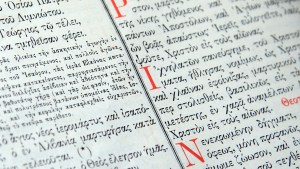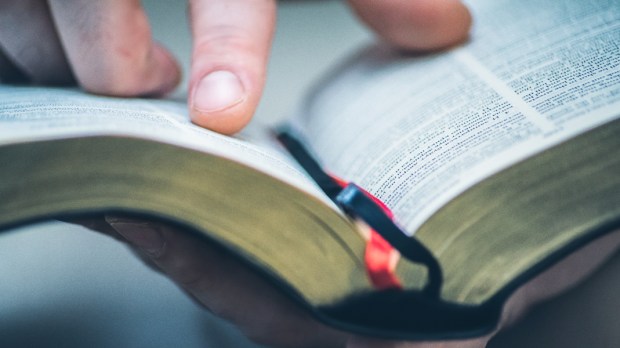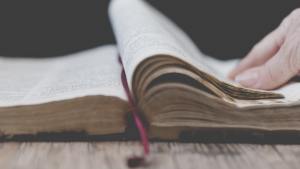The Bible can be a challenging book to read, especially without any guidance. It may appear to be a book of strange stories that don’t have any real impact on our everyday lives.
Yet, the Bible is vitally important and can transform our souls.
Here is a Catholic guide to reading the Bible that may help you see the Bible in a new way.
The Bible is God’s letter to humanity
For Catholics, the Bible is the key to unlocking all the teachings of the faith. It is the foundation of the Catholic Church and continues to inspire the daily lives of her members.
This is because the Bible is God’s “letter” to humanity; he is the primary author and has a message he wants to communicate to all of us.
God is the author of Sacred Scripture. “The divinely revealed realities, which are contained and presented in the text of Sacred Scripture, have been written down under the inspiration of the Holy Spirit.“
CCC 105
What do Catholics believe about the Bible?
Find a good Catholic translation of the Bible
According to some Catholic scholars and teachers, there is no one “best” Bible for Catholics, but several versions are suitable. Often, it depends on the individual, his background in Bible reading and study, and the way he wishes to use the Good Book.
Because there are two main ways biblical translation is done, it may be a good idea to have more than one Bible in one’s possession: one that was translated more literally, for use in Bible study, and one that is not strictly word for word, providing perhaps a “smoother” reading experience.
What is the best edition of the Bible for Catholics?
Keep in mind the 4 ways to read the Bible
The medievals had a little Latin rhyme that says “Litera gesta docet, Quid credas allegoria, Moralis quid agas, Quo tendas anagogia.” Translated poetically, it means: “The literal teaches what God and our ancestors did, / The allegory is where our faith and belief is hid, / The moral meaning gives us the rule of daily life, / The anagogy shows us where we end our strife.”
These four dimensions of interpretation offer just one set of keys to help Catholics mine the hidden meaning of the Sacred Page.
The 4 Ways to read Scripture every Catholic should know
Don’t play “Bible Roulette”!
Some more good advice: playing “Bible Roulette” won’t do much for you, if you’re serious about reading scripture. We have all done it, of course — we’ve opened the book to a random page to “see what God has to say” to us. This practice may have had limited success with certain saints, but with this method the Bible will still remain a mystery to the modern Catholic; it won’t illuminate the rest of salvation history.
The proper approach to the Bible in an intentional one. It consists of using all available resources to plumb the depths of divine wisdom. In this way the Bible “comes alive” and can speak to our hearts.
Try starting with the Gospels
Reading the entire Bible seems daunting, so first open the Gospels. These can be much easier to grasp and the names and episodes within them are more familiar. In particular, start with the Gospel of Mark, the shortest Gospel. Reading Mark can give you a sense of accomplishment as well as an interest to see how the other Gospel writers narrate the life of Jesus.
Many Christians will simply read through all four Gospels over and over again, digging deeper into the heart of Jesus and his message. For the reader who doesn’t know where to start, the Gospels might be the perfect place.
How to read the Bible when you don’t know where to start
Don’t give up!
Reading Sacred Scripture can help our faith mature. Many Catholics stop studying their faith when they leave school. This epidemic leaves our adult believers with a stunted faith. Confronted by difficult questions from non-Catholics, all too often we offer weak or uncertain defenses of our faith. Not every Catholic has to become a seminary professor, but every Catholic can benefit from grappling with serious questions of faith, grounded in the study of the Scriptures.
Reasons Catholics should read the Bible



